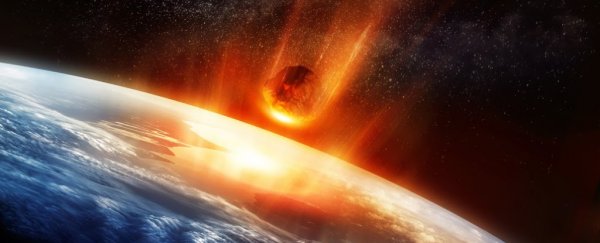Another day, another article has misrepresented the words of a scientist.
This time that article comes from the Russian state-owned website Sputnik News; according to them, a NASA scientist has revealed a "secret sign that would indicate impending apocalypse".
So just to set the record straight, we're here to tell you that Michelle Thaller, an astronomer and assistant director of science communication at NASA's Goddard Center, has done nothing of the sort.
In a recently published YouTube segment by multimedia company Big Think, Thaller answered one of conspiracy theorists' favourite questions - would scientists tell us about a looming apocalypse?
According to Sputnik, Thaller revealed "one of the most reliable signs that the apocalypse is coming".
So what was it? Well, apparently the 'secret sign' amounts to this: "The day you have all the scientists buy up all the great wine, max out their credit cards and disappear, then you might want to worry," Thaller quips in the video (below).
However, that wasn't the end of the sentence.
"But even that's not how we work," adds Thaller. "We are people, and if we knew something dangerous was coming, there would be no way for us to hide it."
A sign of the apocalypse would probably come in the shape of NASA writing about their findings and immediately releasing them to the public; of course, in some corners of the internet that's not as exciting as 'secret signs'.
In the same interview, Thaller also notes that NASA is currently working on ways to stop a disastrous asteroid collision with Earth, but as ScienceAlert has reported before, we have a long way to go before our searching and rerouting abilities are up to scratch.
But Thaller's last point might have been the most important.
When asked questions like 'what is NASA hiding' from people, she explains that it frustrates her that scientists are seen as "this monolithic inhuman group that we could hide things, and that we would want to."
"I know this will not convince the conspiracy theories out there, but one of the things I love most about our science [at NASA] is how accessible it is, and how much we would tell you, even if something bad was going to happen."
If you want to hear the entire segment, the whole video is below.

